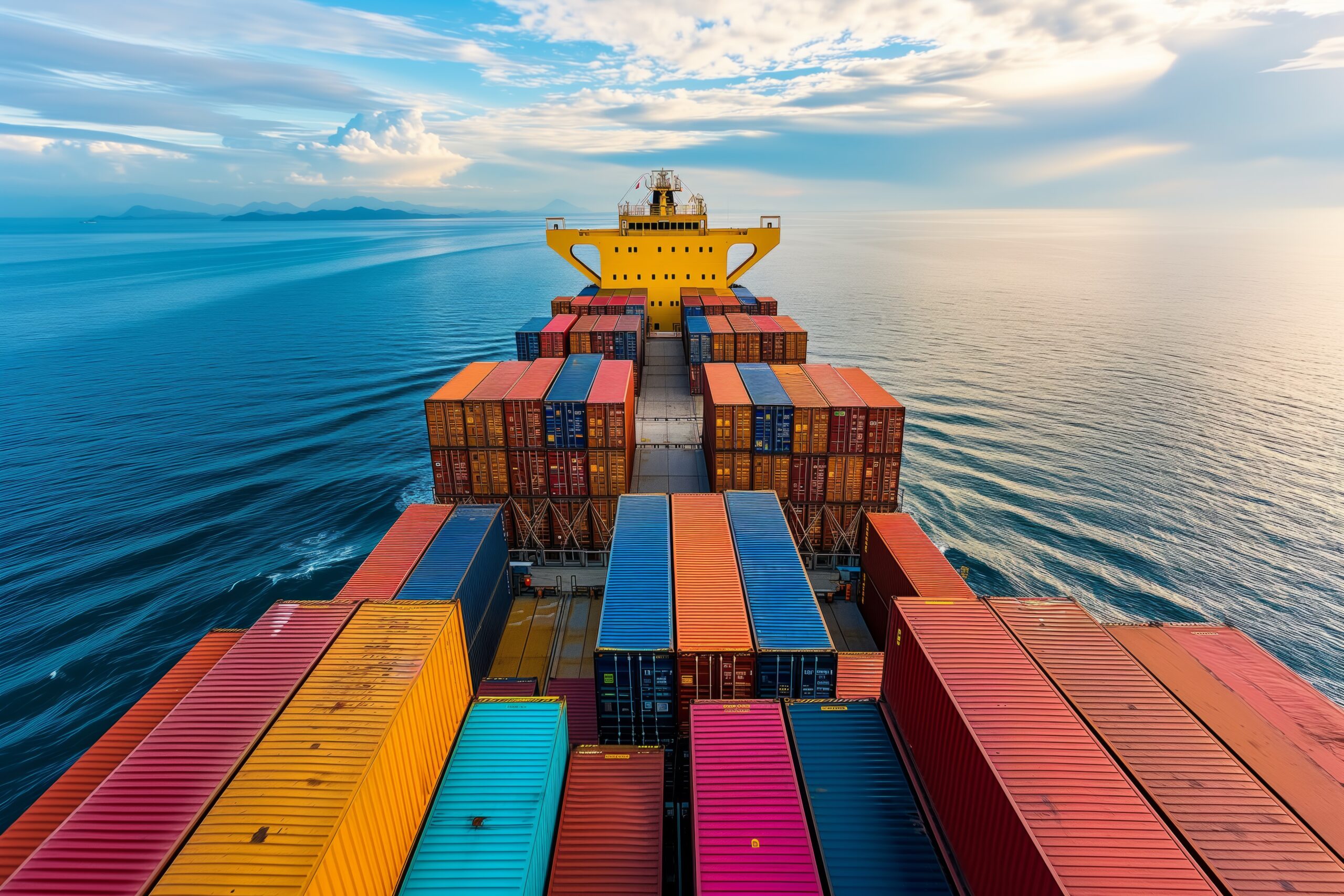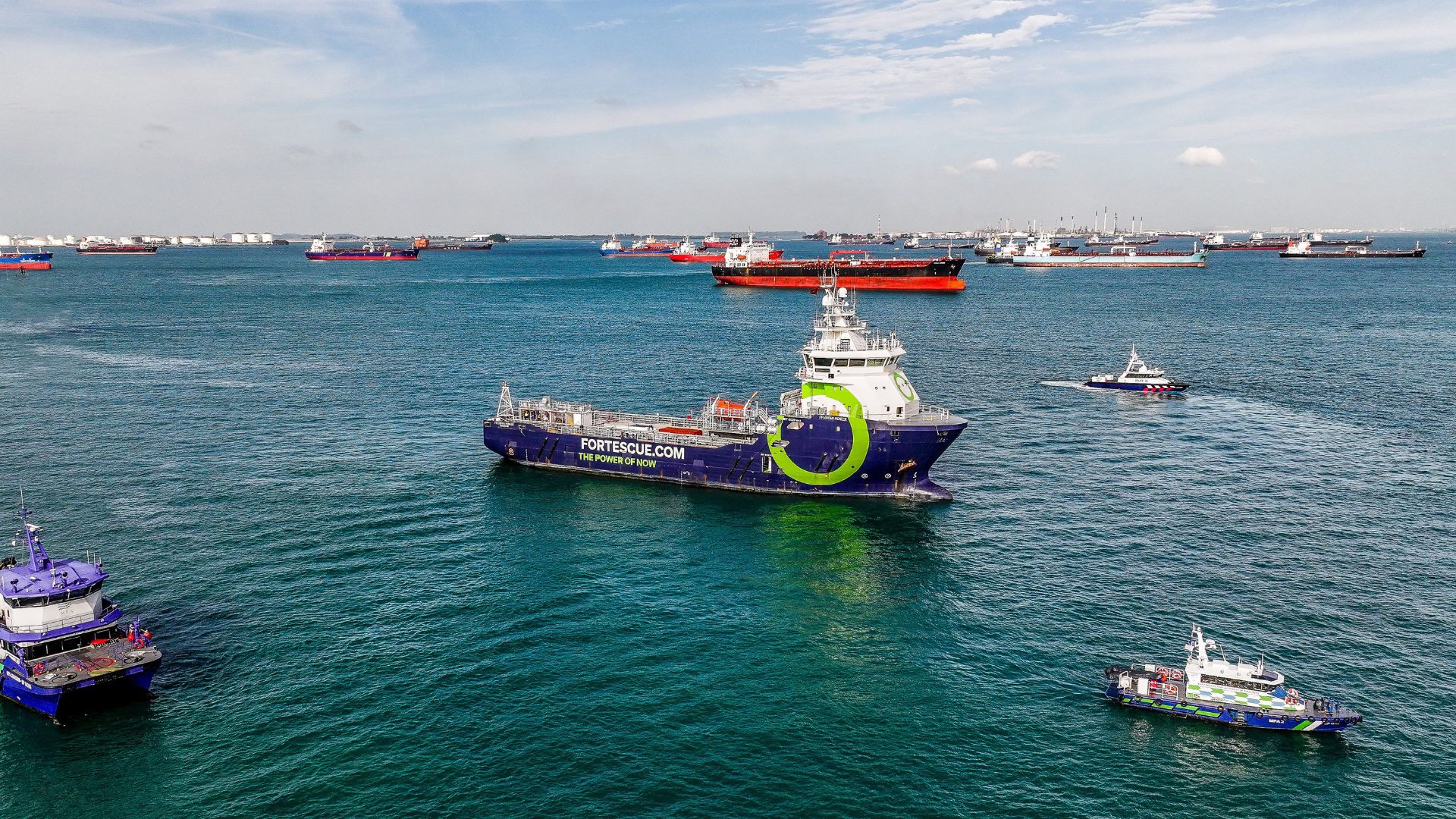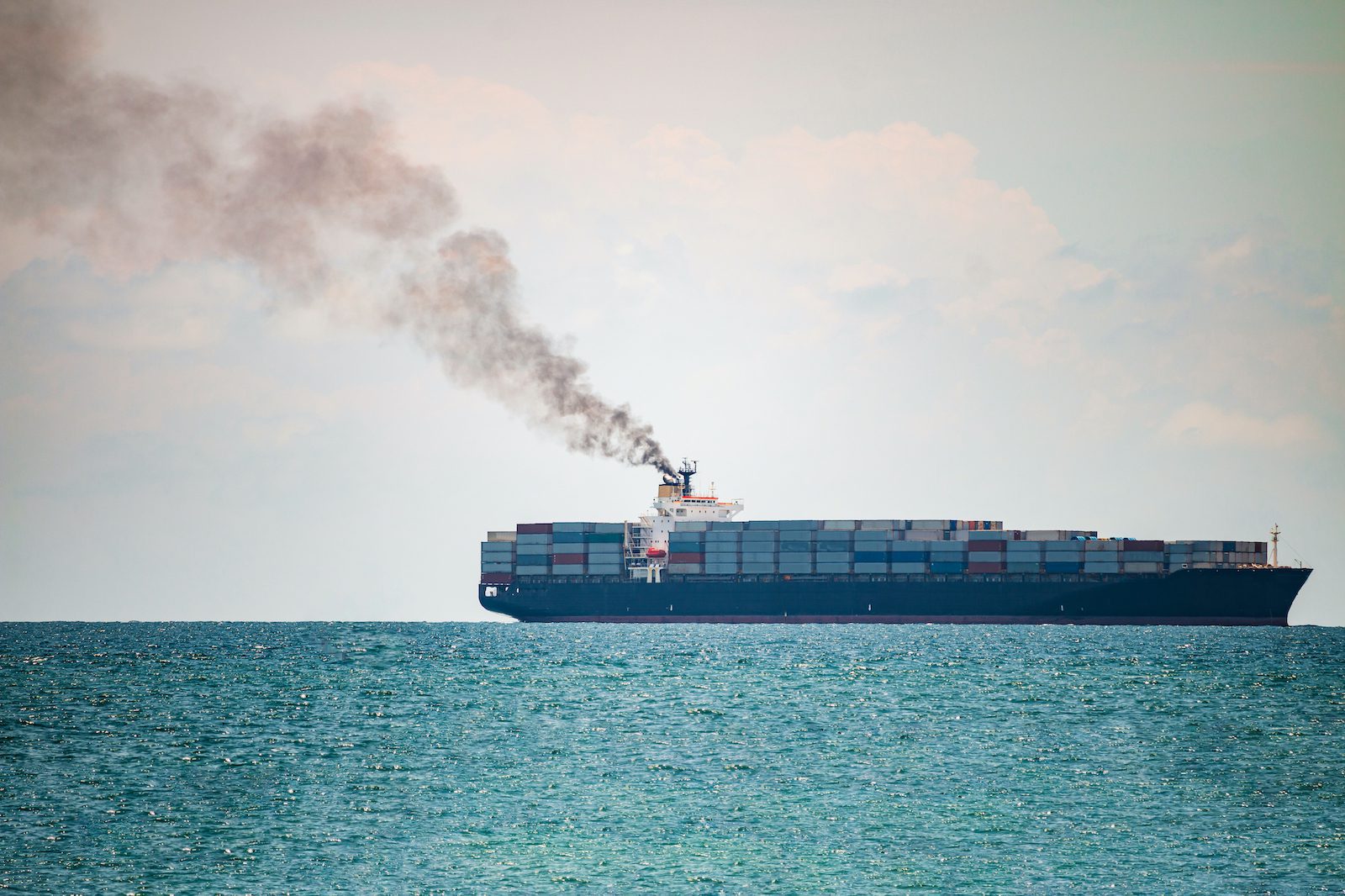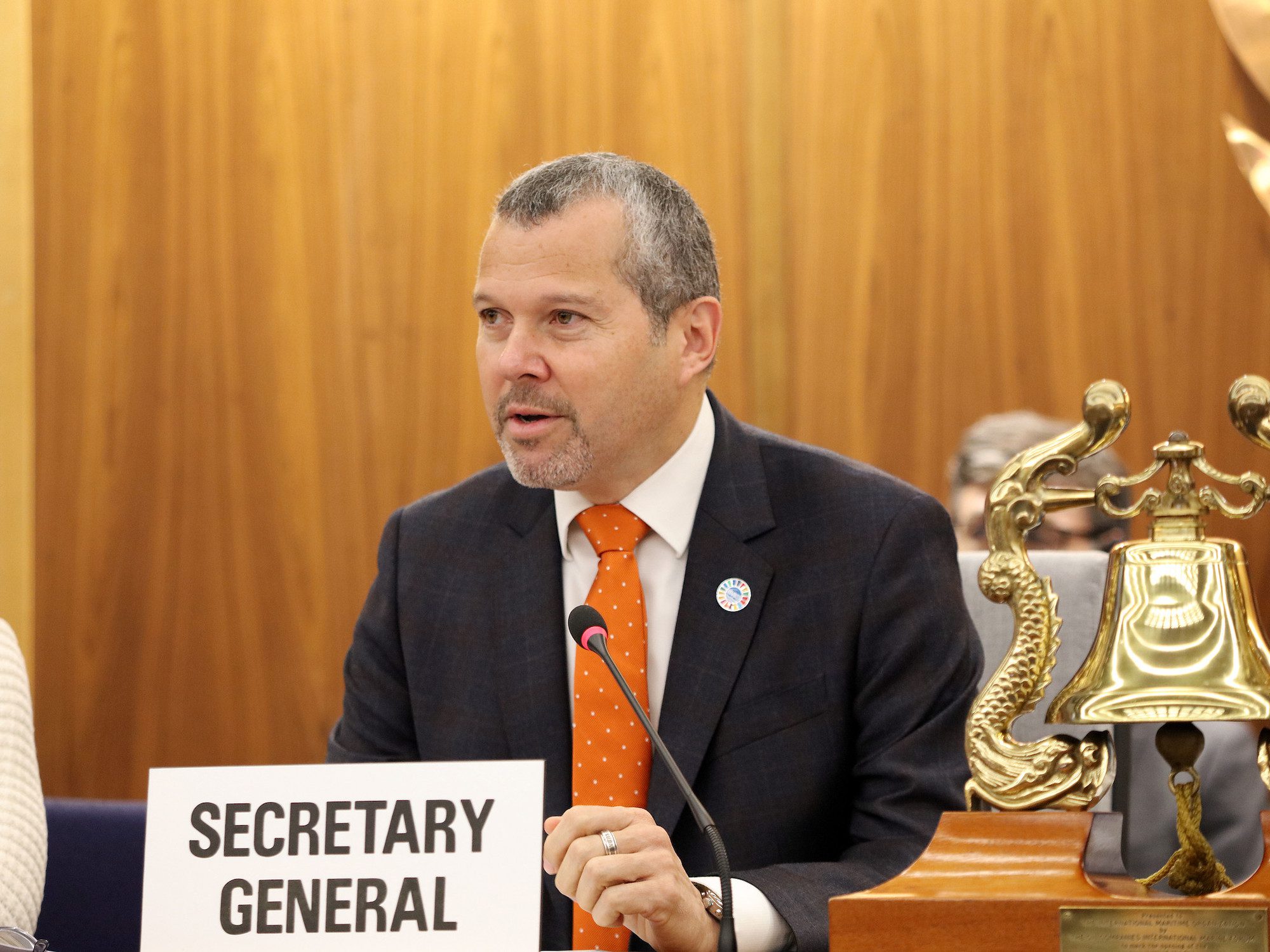By Jennifer A. Dlouhy, Jack Wittels and Eric Martin(Bloomberg) —
Environmentalists eager to curb planet-warming pollution from shipping had grown increasingly confident that countries would adopt the first-ever global tax on emissions this year.
But those predicting success failed to fully account for President Donald Trump harnessing the might of the US against it.
On Friday, nations at a meeting of the UN’s International Maritime Organization voted to delay by one year a decision on the landmark measure that would force large vessels to curb emissions or potentially incur fees of $380 per ton.
The outcome was in part the culmination of a months-long campaign by US officials — including diplomats and cabinet members as well as the president himself — to fight the fee they decried as an untenable global carbon tax.
“President Trump saved America from the outrageous climate scam that was killing our country, and he has long warned others to abandon this destructive agenda before it is too late,” White House spokeswoman Taylor Rogers said by email. “Stopping this disastrous vote is a massive win for the American people and countries around the world that cannot afford to bend the knee to bogus climate demands any longer.”
Industry Voices Disappointment and Concern as IMO Postpones Global Shipping Carbon Tax Vote
European nations and the UK were among those who had supported the regulations in April when they received preliminary approval, but were on the losing side of Friday’s 57-49 vote in favor of postponement.
The US wasn’t alone in battling the initiative; nations including Saudi Arabia, Iran and Russia had voted against the planned emissions charge in April and on Friday backed the delay.
For months beforehand, US officials had been pressing other countries to oppose the measure, at times by delivering arguments about the potential costs and national security risks, said a senior US State Department official who asked for anonymity to speak candidly.
The administration’s work picked up in July, when the State Department gathered federal agencies to develop a roadmap to defeat the plan. By August, the State Department had launched a global demarche – a formal diplomatic outreach to 108 other nations to lay out its opposition.
US officials also met with European counterparts in Brussels last month to discuss what the senior official described as potential off ramps, and they pressed foreign leaders during meetings on sidelines of the UN General Assembly in New York.
Trump administration officials also wielded specific threats, warning other nations they could face tariffs, visa restrictions and financial penalties if they backed the so-called net-zero framework, or NZF. Trump himself has widely used tariffs — and even just the threat of them — to compel other countries to abandon or ease policies with which he disagrees.
“The United States will be moving to levy these remedies against nations that sponsor this European-led neocolonial export of global climate regulations,” Secretary of State Marco Rubio, Energy Secretary Chris Wright and Transportation Secretary Sean Duffy vowed in an Oct. 10 statement. “We will fight hard to protect our economic interests by imposing costs on countries if they support the NZF.”
A suite of cabinet officials were enlisted to deliver arguments against the initiative, including Wright and Rubio as well as Treasury Secretary Scott Bessent, Commerce Secretary Howard Lutnick and Agriculture Secretary Brooke Rollins, the official said. Conversations unfolded in text messages, phone calls, emails and public meetings, often tailored to anticipate and emphasize the potential concerns of other countries, the official said.
For instance, Trump administration officials told other nations the fees would deliver widespread economic damage — hiking costs, stoking inflation and imperiling food security — although some analysts have described a more modest financial impact.
They also cast doubt on plans for using the more than $10 billion in revenue the emissions charges were expected to raise annually. While the draft agreement outlined where revenue would end up — including for ships using low-emission fuels — key financial details had not been finalized, feeding US officials’ arguments it could be an “environmental slush fund.”
US representatives also assured countries that had some concerns with the measure that they didn’t need to go along with it. Some countries previously felt like it was a foregone conclusion, the senior State Department official said.
The US opposition may have provided a kind of political cover for other wavering nations — a scenario that could play out in other international climate talks.
Environmentalists called the administration’s approach and the delay misguided. Currently, ships are almost exclusively powered by oil-derived fuels that spew out more than a billion tons of emissions each year.
Also, the delay would lead to a conflicting patchwork of rules and undermines a potential economic bounty for the US, given its advantage producing lower-emission fuels, they said. Ahead of the vote, some US biofuel producers unsuccessfully lobbied the Trump administration to alter course.
Ahead of Friday’s vote, Andrew Forrest, the billionaire founder and chair of of Fortescue Metals Group, decried what he said were “intimidatory tactics” impacting delegates’ ability to vote their conscience.
“As a global industrialist and philanthropist I stand ready to support any country or individual being blackmailed or threatened,” Forrest said in a message to negotiators at the UN agency. “I am committed to working with others to ensure that justice prevails and bullying tactics do not win out.”
Although conversations were at times tense and spirited, there wasn’t intimidation, the State Department official said.
Lobbying continued until the final hours. On the eve of the vote, Trump himself swooped in to reinforce the American position on Thursday, amid a last-ditch effort tied to potentially pausing the meeting.
“The United States will NOT stand for this Global Green New Scam Tax on Shipping, and will not adhere to it in any way, shape, or form,” Trump said in a social media post. “We will not tolerate increased prices on American Consumers OR, the creation of a Green New Scam Bureaucracy to spend YOUR money on their Green dreams. Stand with the United States, and vote NO in London tomorrow!”
© 2025 Bloomberg L.P.
Editorial Standards · Corrections · About gCaptain
This article contains reporting from Bloomberg, published under license.

 Join The Club
Join The Club











